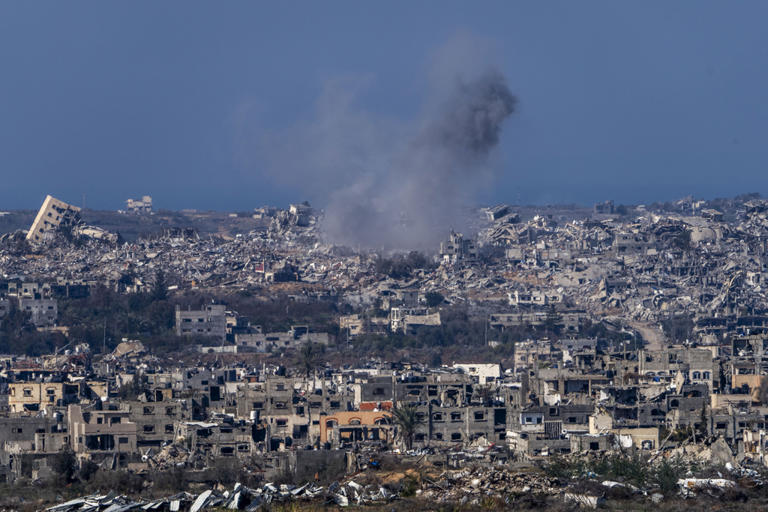Israeli Military Launches Deadly Raids in West Bank After Shooting Attack Kills Three Israelis
The Israeli military launched a series of deadly raids across the occupied West Bank on Tuesday, following a fatal shooting attack that killed three Israelis a day earlier. The Israeli forces reported that at least three Palestinians, who were allegedly militants, were killed in the military operations. One of the slain Palestinians was identified by Hamas as a veteran commander, Jaafar Dababsah. The military also reported that one Israeli soldier was injured in the raids.
The overnight military operations primarily targeted areas in the northern West Bank, where tensions have been escalating. According to Israeli sources, two Palestinians were killed in an airstrike in Tamun, a town in the northern part of the West Bank, after the militants opened fire at Israeli troops. Another Palestinian was killed in close-quarters combat in the nearby village of Taluza. The Israeli military further stated that more than 20 people suspected of being militants were arrested during these operations.
These raids came just hours after a deadly shooting on Monday, in which gunmen opened fire on a bus in the northern West Bank, killing two women in their 70s and a 35-year-old Israeli policeman. While Hamas expressed support for the attack, it refrained from claiming responsibility. Israel’s military has made it clear that the raids were not directly tied to this specific attack but were part of an ongoing effort to target individuals it claims are militant threats in the region.
Tensions in the West Bank have been intensifying amid the ongoing Israel-Hamas war in Gaza, with no immediate resolution in sight. Meanwhile, discussions around the potential for a ceasefire in Gaza and the release of Israeli hostages taken by Hamas continue, though meaningful progress remains elusive. Both sides of the conflict remain entrenched, leaving many to wonder when, or if, an end to the violence will come.
In the broader region, diplomatic efforts continue to unfold as French envoy Jean-Yves Le Drian arrived in Beirut to mediate Lebanon’s prolonged presidential election stalemate. The post has been vacant for more than two years, and the French effort comes amidst Lebanon’s deep political and sectarian divides. As regional tensions shape the political landscape, the Middle East faces numerous challenges that show no sign of abating.

